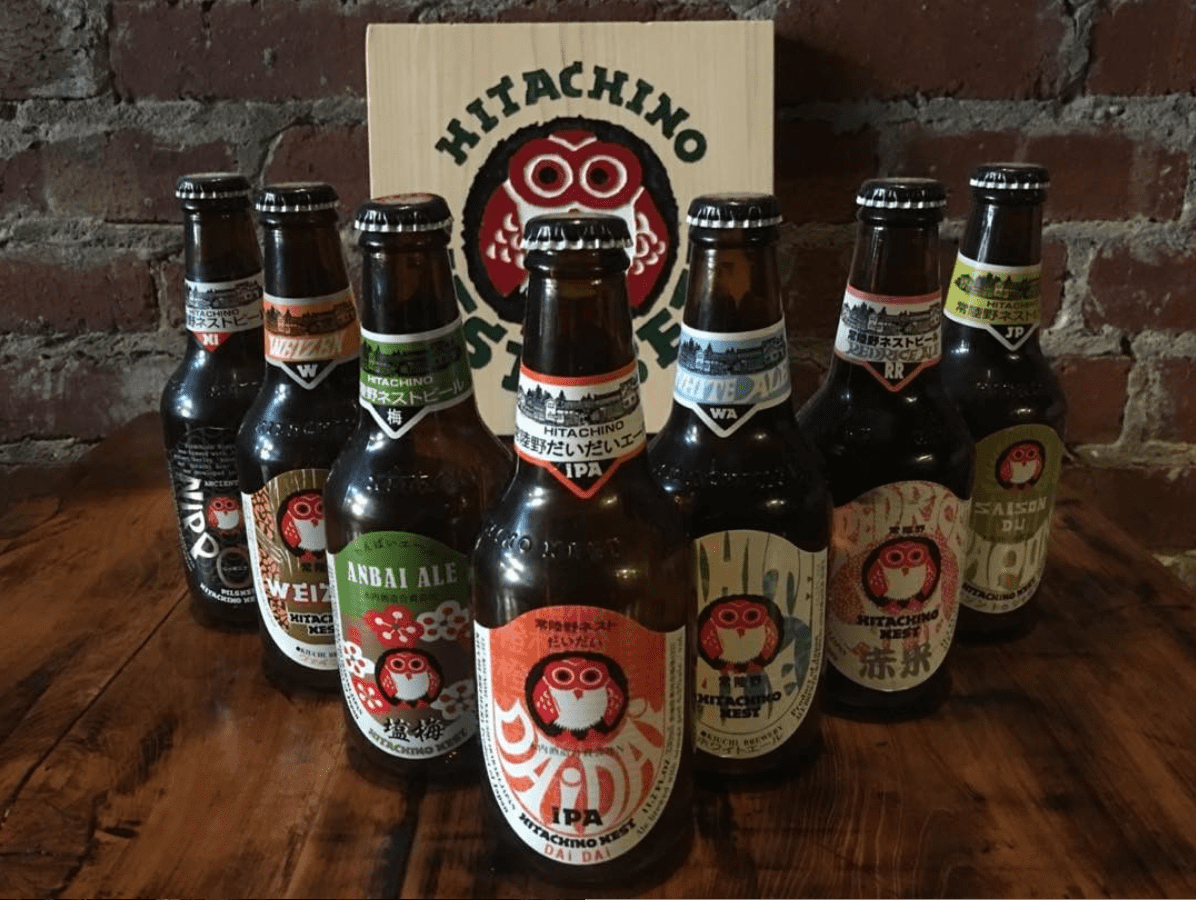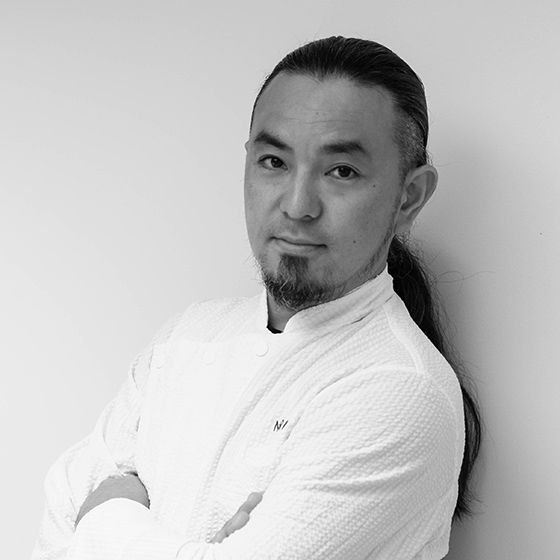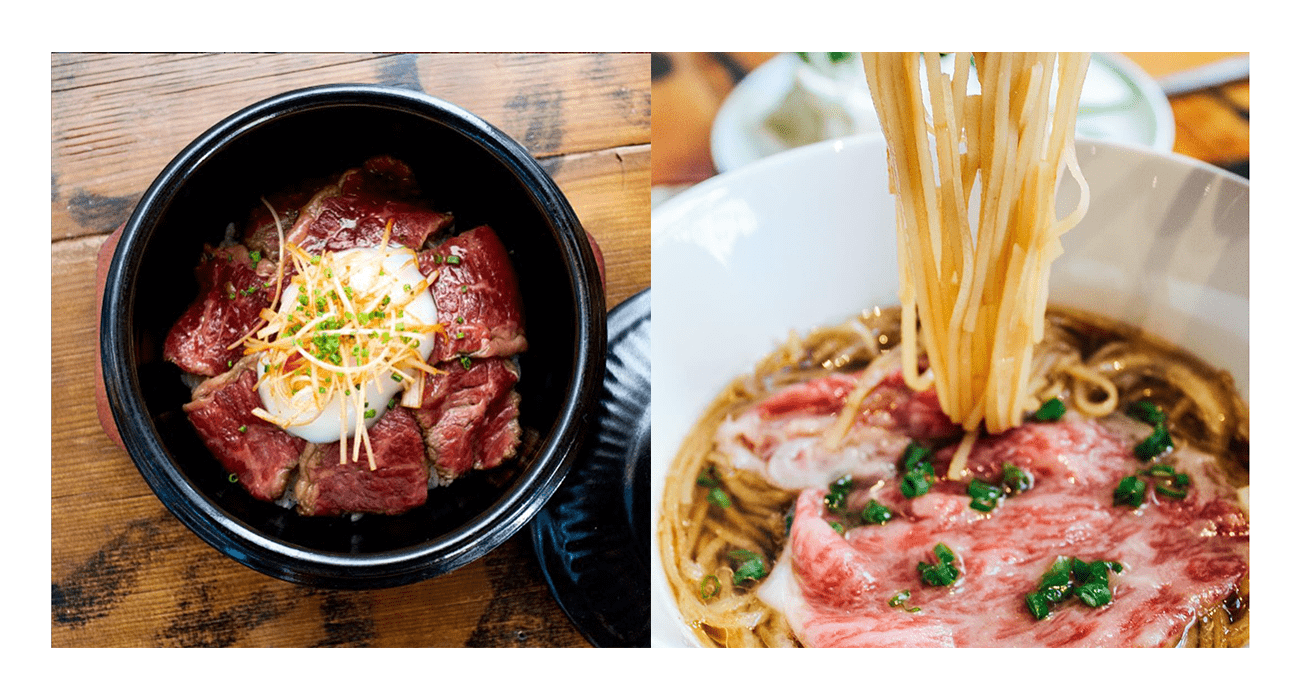
Hitachino Beer & Wagyu
It’s a place to enjoy a “pub” menu based on Japanese beer and wagyu beef.
Hitachino Beer & Wagyu
639 Post St San Francisco, California 94109
(415) 624-3580
http://www.hitachinosf.com

Hitachino Beer & Wagyu was opened in downtown San Francisco in 2017, using a famous product from Ibaraki, the birthplace of Chef Sugie who has traveled all around the world. It’s a place to enjoy a “pub” menu based on Japanese beer and wagyu beef. The downtown hotel area is nearby, so many of the customers are tourists, as well as locals.

Sugie, the owner and chef from Ibaraki Prefecture, started out learning French cooking at a culinary school in Japan. At 21, he started to travel the world, from France to Australia, until he became a chef at a high-class hotel in New York, serving up original dishes with a touch of Asian flavors. Around this time he discovered Hitachino Nest Beer, a craft beer that also came from Ibaraki. When Hitachino Nest Beer opened a restaurant in Tokyo, Sugie planned the food menu. That connection led to him launching Hitachino Beer & Wagyu in San Francisco, which is also known as the birthplace of craft beer, featuring Japanese craft beer and another one of Ibaraki's local specialties, Hitachi beef.

Hitachino Nest is a craft beer created in Japan by Kiuchi Brewery that has received awards from international contests. In pursuit of the Japanese touch, the brewery has also created brews using iconic Japanese ingredients, such as "Red Rice Ale" from red rice and "Yuzu Lager" from yuzu. They have 7 types always available in can, bottle or draft. It is highly recognized and well received by American beer fans, even compared with the veteran “made in San Francisco” beer.

Their other attraction is a wagyu menu using Hitachi beef. Improved distribution in recent years has made wagyu a recognized brand even in America. Sugie says, “It’s a natural transition for a place that has a culture of eating beef.” Especially in recent years, wagyu is becoming more accepted in forms other than steaks. “It’s a luxury ingredient, up there with truffles, caviar and foie gras, but wagyu can also be a main on its own,” explains Sugie. “Pork or chicken could not reach the same level.” Fatty Hitachi beef is especially flavorsome and easy to eat. You can experience that exquisiteness with the Hitachi beef sushi on the course menu. Based on the concept of using every part of a procured cow from head to toe, parts that are not generally used from American beef, such as the skirt steak, chuck, and rump, which are deliciously edible due to the tenderness of Japanese beef are being shown off in the most delectable manner. Chef Sugie is creating a menu through researching cooking methods for each part. For example, the tough beef chuck can be glazed, used on rice, or minced for dumplings. The red meat from the rump is used raw in tartare or half-cooked. The menu has specializations for each beef cut. Although Chef Sugie asserts that the restaurant is not a steak house, it's still a great place to enjoy wagyu steak, and foodies do flock here to try out the Hitachi beef delicacies for themselves.

Even though they use the luxury ingredient wagyu, Hitachino Beer & Wagyu views itself primarily as a beer bar. The standard fare here is “side dishes” to go with beer. It’s a casual place for a carefree drink, where Sugie will invite you to have a drink first. For rice bowls and noodles the wagyu is not overly emphasized. Plus, there are many traditional Japanese bar items on the menu that don’t include wagyu. There is a large variety of dishes using seasonal vegetables and seafood. They use many Japanese ingredients other than wagyu to bring out the "Japanese" flavor, especially seasonings such as salt, miso, soy sauce, yuzu pepper, and wasabi. At the same time, there is a new Hitachi beef course every month and it is also used for important events, such as anniversaries.
Made in Japan beer and beef are starting to be accepted in America, and this trend is expected to gain even more momentum in the future.
